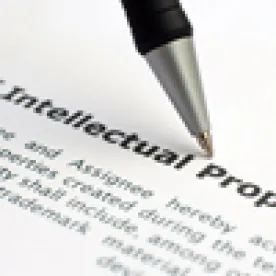Takeaway: A party can be ordered to submit information it produced in a related proceeding under a protective order, if that information is cited to by that party or if that information is inconsistent with positions taken by that party in the instant proceeding.
In its Order, the Board granted Petitioner’s motion to compel with regard to IPR2015-00594 (the ’594 proceeding), but denied Petitioner’s motion with regard to IPR2015-00592 (the ’592 proceeding). Specifically, Petitioner “sought the transcript of the deposition of Mr. Mombers in the related International Trade Commission (ITC) proceeding, and other information related to inventorship of Favrat.”
Favrat is not a reference in any of the instituted grounds in the ’592 proceeding, and thus because the request related to the Favrat reference, the motion was denied with regard to that proceeding. Favrat is an anticipation ground in the ’594 proceeding, and thus the Board considered the information related to inventorship of Favrat with regard to the ’594 proceeding.
In the preliminary response in the ’594 proceeding, Patent Owner argued that Favrat is not prior art under 35 U.S.C. § 102(e), because it was not by another. Specifically, Patent Owner argues that claims 1, 2, 4, 5, 11, and 24-29 of Favrat were conceived by Group A inventors without contribution from Group B inventors, who only contributed to claims 13-23. The Board had instituted the ground stating that it was premature to decide this issue at that stage. In its Response, Patent Owner provided declarations of two Group A inventors that included several assertions regarding Mr. Mombers, a Group B inventor. One of the assertions was that Mr. Mombers incorrectly testified in the ITC proceeding that he conceived of some part of claims 1, 4, 5, 24, and 25.
Patent Owner relied on a non-precedential decision in IPR2014-01510 and argued that this was not a discovery issue because Petitioner already had copies of the deposition transcript and other information sought. The Board distinguished this request from the request in IPR2014-01510, because in this request Petitioner is asking the Board to compel Patent Owner to submit the evidence, whereas in the other case, the petitioner had asked the Board to compel itself to submit the evidence.
Patent Owner also argued that the information sought is under a protective order in the ITC proceeding that prevents its use in this proceeding. The Board agreed with Petitioner that the ITC protective order restricts how a receiving party can disclose or use confidential business information, not the producing party.
Petitioner argued that the Mombers deposition transcript must be served as routine discovery under 37 C.F.R. § 42.51(b)(1)(i), because it was cited in testimony submitted with Patent Owner Response. Specifically, the transcript was cited to in the declaration by the Group A inventors. Patent Owner relied on a non-precedential decision in IPR2013-00050 and argued that the Mombers deposition transcript need not be provided, because it was not cited. The Board distinguished that decision because in that case, the patent owner had requested laboratory notebooks and associated protocols for the sample testing by an expert witness, which the Board found to be tangential to the evidence. Whereas in this case, the Board found the connection to be much more direct because the testimony of the Group A inventors cites to and contradicts the Mombers deposition transcript.
Petitioner also argued that the Mombers deposition transcript must be served as routine discovery under 37 C.F.R. § 42.51(b)(1)(iii), because it is relevant information that is inconsistent with a position advanced by Patent Owner. For example, Petitioner contends that Patent Owner did not dispute whether Favrat was prior art in the ITC proceeding, but is disputing it in this proceeding. The Board agreed with Patent Owner that the discrepancy was merely different defense strategies cause by different burdens of proof and not an inconsistent position. However, the Board still found that the Mombers deposition transcript is routine discovery under 37 C.F.R. § 42.51(b)(1)(iii), because the Mombers deposition transcript is inconsistent with Patent Owner’s position that Mr. Mombers did not conceive any part of claims 1, 4, 5, 24, and 25.
Maxlinear, Inc. v. Cresta Technology Corporation, IPR2015-00594, 592
Paper 35: Decision on Petitioner’s Motion to Compel Production of Certain Routine Discovery or, in the alternative, for Authorization to Serve Discovery Requests Related to the Same
Dated: January 27, 2016
Patent 7,265,792 B2; 7,075,585 B2
Before: Phillip J. Kauffman, Gregg I. Anderson, and Patrick M. Boucher
Written by: Kauffman



 />i
/>i
